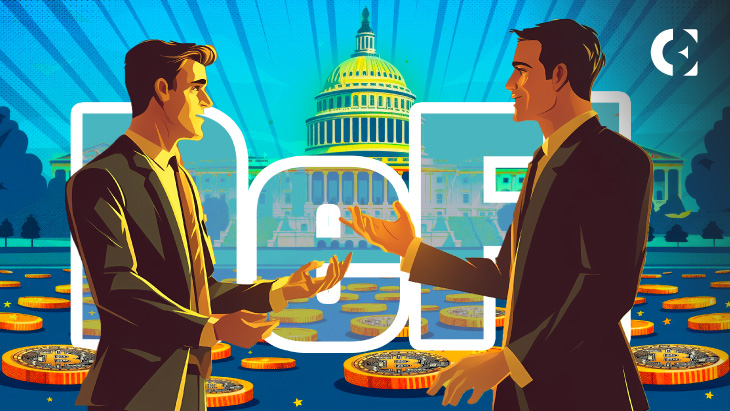- Lawmakers were divided on DeFi’s role in finance, with Republicans favoring peer-to-peer systems and Democrats focusing on risks.
- Critics argued DeFi facilitates tax evasion and scams, while supporters praised its potential for financial inclusion.
- The hearing underscored the urgent need for clear regulatory guidance as the DeFi sector continues to grow and evolve.
Jake Chervinsky, a lawyer, expressed his emotions after the first-ever Congressional hearing on decentralized finance (DeFi). He highlighted the significance of DeFi’s rise from a handful of projects to now being discussed in Washington, D.C. The hearing, titled “Decoding DeFi: Breaking Down the Future of Decentralized Finance,” took place on September 10 under the House Financial Services Committee.
Read also: CFTC Cracks Down on DeFi: Uniswap Fined for Leveraged Token Trading
The hearing exposed a clear divide between Republicans and Democrats regarding DeFi’s impact and regulation. Republican subcommittee chair French Hill championed DeFi’s potential to remove intermediaries from financial transactions, advocating for a peer-to-peer financial system. He even referenced the controversial 2022 freezing of protesters’ crypto accounts by the Canadian prime minister as an example of how personal freedoms can be curtailed.
In contrast, Democratic Representative Brad Sherman expressed strong criticism, arguing that DeFi is mainly used for tax evasion and criminal activities. He suggested that DeFi primarily serves to protect the wealthy from paying their fair share of taxes.
Expert Witnesses Offer Diverse Perspectives
Five witnesses shared their insights during the hearing. Peter Van Valkenburgh, Director of Research at Coin Center, countered Sherman’s arguments, highlighting the lack of clear regulatory guidance for the industry. He emphasized that the existence of tax evasion shouldn’t justify a heavily controlled financial system.
Read also: Pendle Saves $105 Million in DeFi Exploit, Halts Penpie Hack
Democratic Representative Maxine Waters voiced concerns about the security of DeFi platforms, referencing recent hacks involving the Trump family’s DeFi project, “World Liberty Financial.” Waters questioned the ability of regulators like the SEC and CFTC to effectively address DeFi-related issues.
Mark Hays, a senior policy analyst at Americans for Financial Reform, also voiced strong criticism of the industry. He described DeFi as volatile, scam-laden, and highly predatory. Hays argued that current securities laws should apply to DeFi to protect investors from significant losses.
On the other side, Amanda Tuminelli, chief legal officer at DeFi Education Fund, defended DeFi’s potential for financial inclusion. She stated that traditional finance relies on intermediaries who often gatekeeper access. In contrast, DeFi is open to anyone with an internet connection, enabling broader access to financial services.
As the first-ever Congressional hearing on DeFi wrapped up, the contrasting viewpoints showcased the deep divide among lawmakers and experts on how to regulate this emerging sector. With DeFi rapidly growing, the need for clear regulations remains a focal point of debate.
Disclaimer: The information presented in this article is for informational and educational purposes only. The article does not constitute financial advice or advice of any kind. Coin Edition is not responsible for any losses incurred as a result of the utilization of content, products, or services mentioned. Readers are advised to exercise caution before taking any action related to the company.







